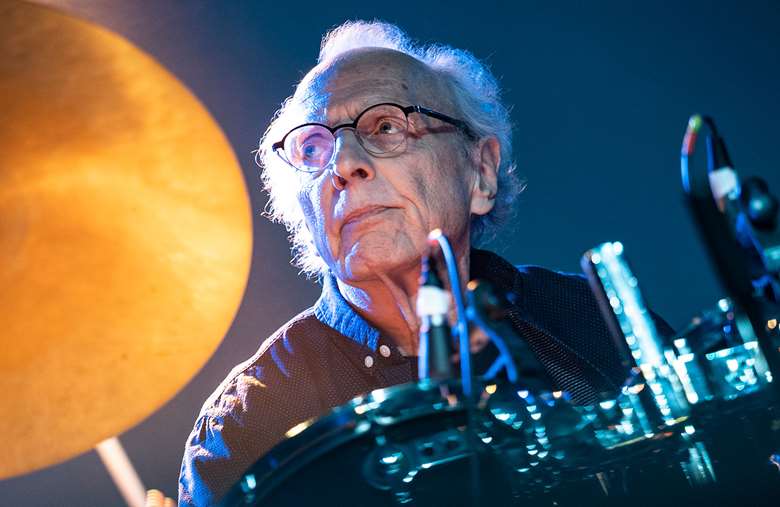John Marshall: 28/08/1941–16/09/2023
Alyn Shipton
Monday, September 18, 2023
Alyn Shipton pays tribute to the acclaimed drummer who has died aged 82, following a long and illustrious career that included being a member of two iconic British jazz-rock groups, Nucleus and Soft Machine

One of the most versatile and accomplished drummers ever to emerge from the British jazz scene, John Marshall was not only acutely sensitive to the needs of whatever group he was playing with, but he had an intuitive understanding of the environment in which the music was being made. I first heard him with Michael Garrick’s sextet in the late 1960s, judging perfectly how to work in the acoustics of huge church spaces, but he was equally effective 30 years later at the opposite end of the sonic spectrum, providing minimalist percussion in the delicate chamber jazz trio with Vassilis Tsabropoulos and Arild Andersen at a hushed Dean Street Pizza Express Jazz Club.
By the time of his Garrick affiliation, John had already made his mark playing with Alexis Korner, and then Graham Collier’s Sextet. The high point of his work with Collier was the album Down Another Road (1969) but by then — alongside working with such luminaries as Harry Beckett, Tony Coe, Kenny Wheeler, Mike Gibbs and Keith Tippett — John was about to join the first version of Ian Carr’s Nucleus, staying with this pioneering jazz-rock fusion group for two years until 1971. Carr told me: “His playing was like an essay on how to play drums for this kind of music. He’s got incredible strength, he’s very powerful, yet he has equally incredible sensitivity.” They would be reunited periodically over the years, but in 1972 John (and his Nucleus colleague Karl Jenkins) joined Soft Machine. Although he left this band in 1981, his association with it would continue on and off for the rest of John’s life, starting with a 1984 tour, but most notably in the 2002 reunion with Elton Dean, Hugh Hopper and Allan Holdsworth as Soft Works, and then (with John Etheridge on guitar) as Soft Machine Legacy. This latter band (eventually dropping the ‘Legacy’ tag) continued right up to Marshall’s final pre-retirement album with the group, Other Doors, made in 2022.
Yet despite a welter of high profile freelance commitments at home and in continental Europe, John maintained a role in other long-term musical projects. One was the John Surman Quartet, including Chris Laurence and John Taylor, with whom he first recorded in 1973, eventually making the follow-up, Stranger Then Fiction over 20 years later. Lack of albums did not mean lack of work, and the quartet appeared often on the festival circuit, as well as marking the 30th anniversary of Birmingham Jazz with a particularly dazzling concert at the CBSO Centre in 2006. This again showed John’s ability to match his playing to a resonant and somewhat unforgiving space.
His other long-term association was with Eberhard Weber’s Colours, in which John replaced Jon Christensen, staying for four years until 1981. Although this coincided with part of his time with Soft Machine, John would joke that the Softs were “the most famous band that never played”, and working with Weber he achieved considerable fame in Germany and the US in what the European press dubbed the ‘most famous fusion band in Europe’.
In recent years, John and his wife Maxie were often to be found at London venues, listening to music, or catching the latest film or play. His enthusiasm for the arts remained right to the end, and he will be remembered as a much-loved master of jazz drums in all styles.